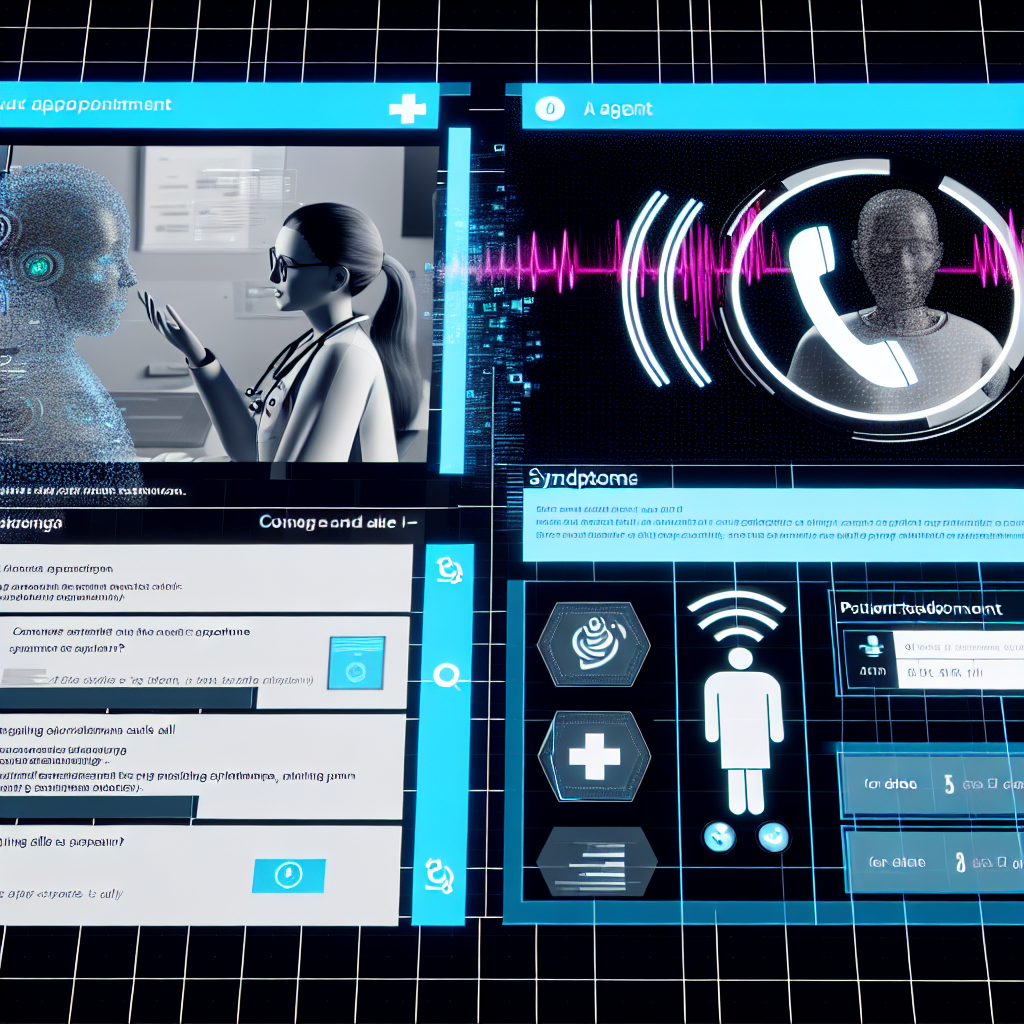Introduction
Conversational AI agents are rapidly transforming various sectors, and healthcare is no exception. These intelligent systems can significantly enhance efficiency and patient experience by automating routine tasks. Among the numerous applications of conversational AI in healthcare, patient scheduling, symptom checking, and follow-up calls stand out as the most effective usage cases. By streamlining these processes, healthcare providers can focus more on patient care while improving overall operational efficiency.
Patient Scheduling
One of the primary use cases for conversational AI in healthcare is patient scheduling. Traditional scheduling methods often involve extensive phone calls and time-consuming manual entry. In contrast, AI agents can manage appointment bookings in real-time, allowing patients to seamlessly schedule, reschedule, or cancel appointments via chat interfaces or voice commands. This not only reduces administrative burdens on staff but also enhances patient satisfaction by providing immediate responses to their scheduling needs.
Symptom Checking
Another critical application is symptom checking. Patients frequently seek medical advice for various health concerns, and conversational AI agents can conduct initial assessments by asking pertinent questions about symptoms and medical history. Based on the patient’s responses, the AI can offer recommendations, triage the urgency of care needed, and direct patients to the appropriate healthcare resources. This capability not only aids patients in navigating their healthcare journeys but also helps clinicians prioritize cases that require immediate attention.
Follow-Up Calls
Additionally, conversational AI can automate follow-up calls, ensuring that patients adhere to their treatment plans and appointments. After a consultation or treatment, AI agents can reach out to patients to inquire about their recovery status, medication adherence, or any side effects they may be experiencing. This proactive communication fosters continuous engagement and allows healthcare providers to intervene promptly if issues arise, ultimately contributing to better patient outcomes.
Conclusion
In conclusion, the integration of conversational AI agents in healthcare enhances operational efficiency, improves patient experiences, and fosters better health outcomes. By effectively managing patient scheduling, conducting symptom checks, and automating follow-up communications, these AI solutions serve as invaluable tools in the healthcare landscape. As technology continues to advance, the potential for further innovations in this domain remains promising, paving the way for a more streamlined and patient-centric healthcare delivery system.

